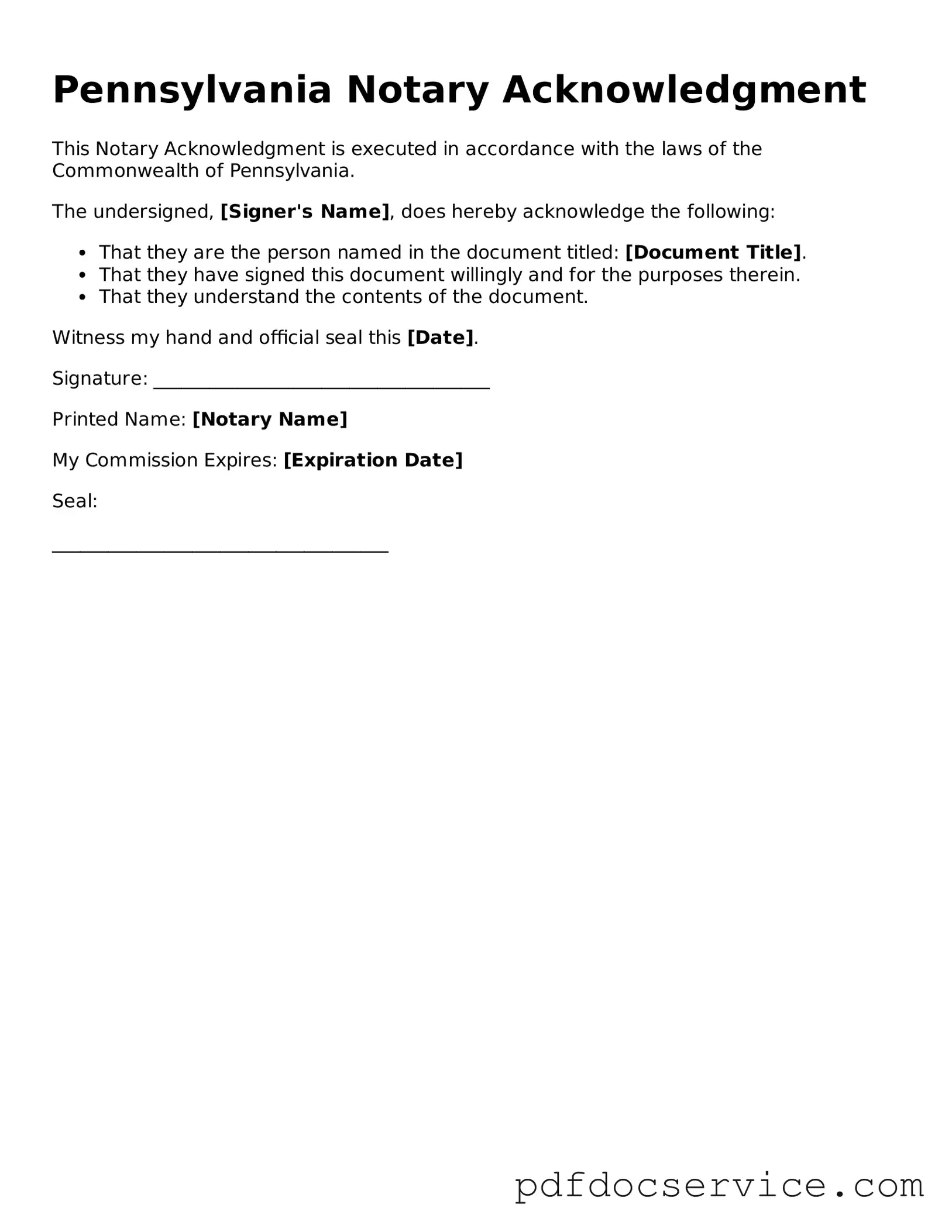The Pennsylvania Notary Acknowledgement form is a legal document used to verify the identity of a signer and confirm that they willingly signed a document. This form is essential in various transactions, such as real estate deals, legal agreements, and financial documents. It serves to protect all parties involved by ensuring that the signing was done under the right circumstances.
You typically need to use a Notary Acknowledgement form when signing important documents that require notarization. Common situations include:
-
Real estate transactions, such as deeds or mortgages
-
Wills and trusts
-
Powers of attorney
-
Contracts and agreements
In these cases, having a notary public acknowledge your signature adds a layer of authenticity and legal validity.
Who can serve as a notary public in Pennsylvania?
In Pennsylvania, a notary public must meet specific criteria to serve in this role. The requirements include:
-
Being at least 18 years old
-
Being a resident of Pennsylvania or having a place of business in the state
-
Completing a notary training course
-
Passing a state exam
-
Obtaining a notary bond
Once these steps are completed, the individual can apply for a notary commission through the Department of State.
Filling out the Notary Acknowledgement form is straightforward. Follow these steps:
-
Provide the date of the acknowledgment.
-
Include the name of the person signing the document.
-
Indicate the title of the document being signed.
-
Have the signer appear before the notary and sign the document.
-
The notary will then complete the acknowledgment section, including their signature and seal.
Make sure all information is accurate to avoid any issues later on.
Is there a fee for notarization in Pennsylvania?
Yes, notaries in Pennsylvania can charge a fee for their services. As of October 2023, the maximum allowable fees are:
-
$5 for each notarized signature
-
$5 for administering an oath or affirmation
-
Additional fees may apply for travel or other services
It's wise to confirm the fee with the notary before the service is rendered.
What happens if I don't get a Notary Acknowledgement?
Failing to obtain a Notary Acknowledgement can lead to several complications. Without this form, the validity of your signed document may be questioned. This could result in:
-
Legal disputes regarding the authenticity of the signature
-
Challenges in enforcing the terms of the document
-
Potential financial losses or liabilities
To avoid these risks, it's crucial to ensure that all necessary documents are properly notarized.

